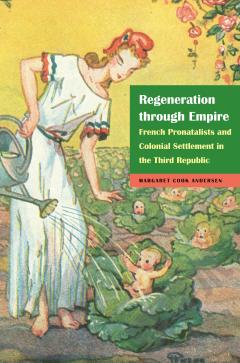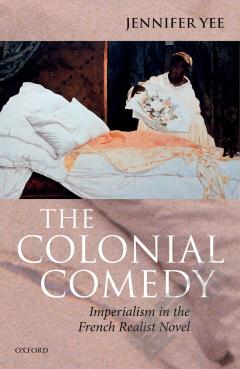Regeneration through Empire: French Pronatalists and Colonial Settlement in the Third Republic
Following France's defeat in the Franco-Prussian War in 1870-71, French patriots feared that their country was in danger of becoming a second-rate power in Europe. Decreasing birth rates had largely slowed French population growth, and the country's population was not keeping pace with that of its European neighbors. To regain its standing in the European world, France set its sights on building a vast colonial empire while simultaneously developing a policy of pronatalism to reverse these demographic trends. Though representing distinct political movements, colonial supporters and pronatalist organizations were born of the same crisis and reflected similar anxieties concerning France's trajectory and position in the world. Regeneration through Empire explores the intersection between colonial lobbyists and pronatalists in France's Third Republic. Margaret Cook Andersen argues that as the pronatalist movement became more organized at the end of the nineteenth century, pronatalists increasingly understood their demographic crisis in terms that transcended the boundaries of the metropole and began to position the French empire, specifically its colonial holdings in North Africa and Madagascar, as a key component in the nation's regeneration. Drawing on an array of primary sources from French archives, Regeneration through Empire is the first book to analyze the relationship between depopulation and imperialism.
{{comment.content}}








 京公网安备 11010802027623号
京公网安备 11010802027623号